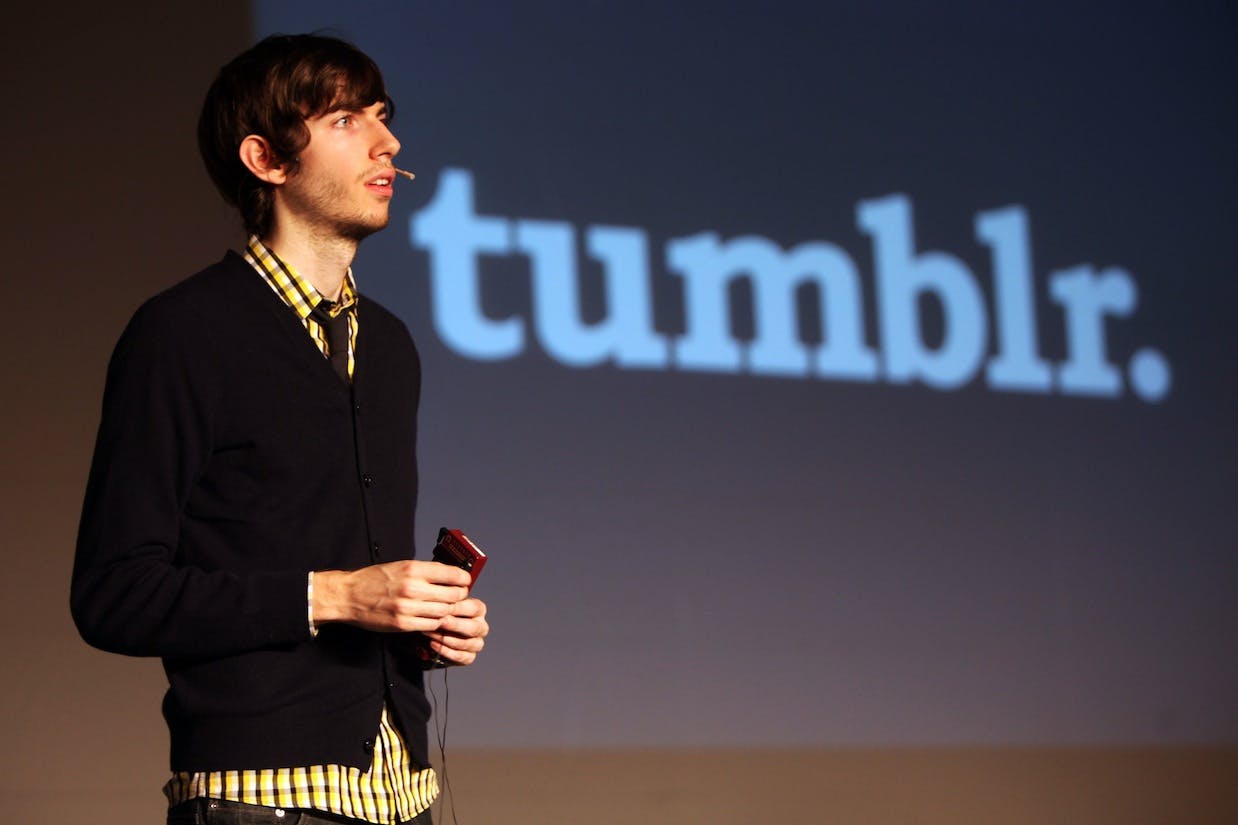
David Karp, Tumblr, and Just Rewards
Jumping off of Monday’s post about Tumblr and David Karp, I’ve been thinking about what it means to deserve rewards for your work.
If I’m interpreting correctly, Biddle basically is arguing that Karp doesn’t deserve this kind of payout, that it “sets a bad precedent” for those who pursue businesses with no financial goals. I posted yesterday that I thought that was a problematic position to take.
On Twitter, I referenced the research university as an example of society being willing to pay for/reward work that doesn’t necessarily provide economic value, to which I was told “well yeah, but those could change the world. Tumblr… not so much.”
My counterpart imposes his own values upon Tumblr: is it worth anything? Has it changed the world? Has it improved anything? Or is it just a vast wasteland of GIFs, porn, and celebrity gossip?
I think this is the wrong question to ask. The more interesting question is whether it is acceptable for a company with no economic value[1. Insofar as it generates little/no revenue] should be purchased for the staggering $1.1 billion Tumblr was purchased for.
Society rewards effort and hard work with… money. Wealth. And the power that comes with it. And that effort and hard work is measured by its economic value: how much economic activity does it generate, how much money does it make, how many products does it sell, etc.
From this perspective, it makes little sense, when you are buying into this “monetary-rewards” system by starting a company, to then be rewarded within that system for intentionally not living up to the standards it sets. David Karp eschewed any aim of making money with Tumblr (and ironically enough, previously proclaimed his desire not to sell at all).
However, there’s also a lot of activities (I’ll point to the obvious non-profit work to avoid deluding my point) that generate social value without being rewarded with money. Again, these are ideas and activities with a much more murky sense of their social value, as the accomplishments aren’t as easily measurable; to be more explicit with an example, if you run a soup kitchen and feed 100 people every day, how would one decide whether that activity is more socially valuable than a small business owner? There is no easy, direct comparison the way economic activity is an easy, direct comparison.
What I’m trying to get at is society doesn’t really do a good job of rewarding activities that benefit it without any direct economic activity generated[2. I would also argue, within the monetary rewards system, we do a poor job providing proper rewards for even economic activities, but that’s for another day.]. Non-profit work is notoriously difficult and undervalued, and many organizations that do good work struggle to keep the lights on. As a general principle, I don’t think it’s unreasonable to reward an idea, and its execution, that proves immensely useful and popular the way Tumblr was, even if it doesn’t generate any direct economic activity.
However, I think Biddle’s real problem is that Karp never fully committed to one side or the other; if he really wanted to pursue Tumblr as an “art project,” insofar as it was dedicated solely to his particular vision of the product and refuse any attempts to subvert that vision for profits, there are numerous ways for him to have organized it to those ends[3. Although I am inclined to think none of these would have granted Tumblr the size, scale, and impact it ultimately achieved.].
However, he did choose to organize it as a company, and he did take on investors, and those investors did so with the belief that this investment would be profitable, that the company they were investing in would be profitable and by extension, make them money.
So his approach to Tumblr as a company ultimately allowed him to straddle those two divides and reap the benefits of both, by both having full control while making a lot of money, without being subjected to the difficulties of either, by either struggling financially as artists do or subjecting their vision to the needs of a profit-making entity.
He didn’t end up having to make the hard choices – the choices adults have to make when values and needs conflict. And ultimately, he has a real problem with society rewarding Karp without forcing him to make the tough choices society asks of us in return.
That’s the bad precedent the Tumblr sale sets.
